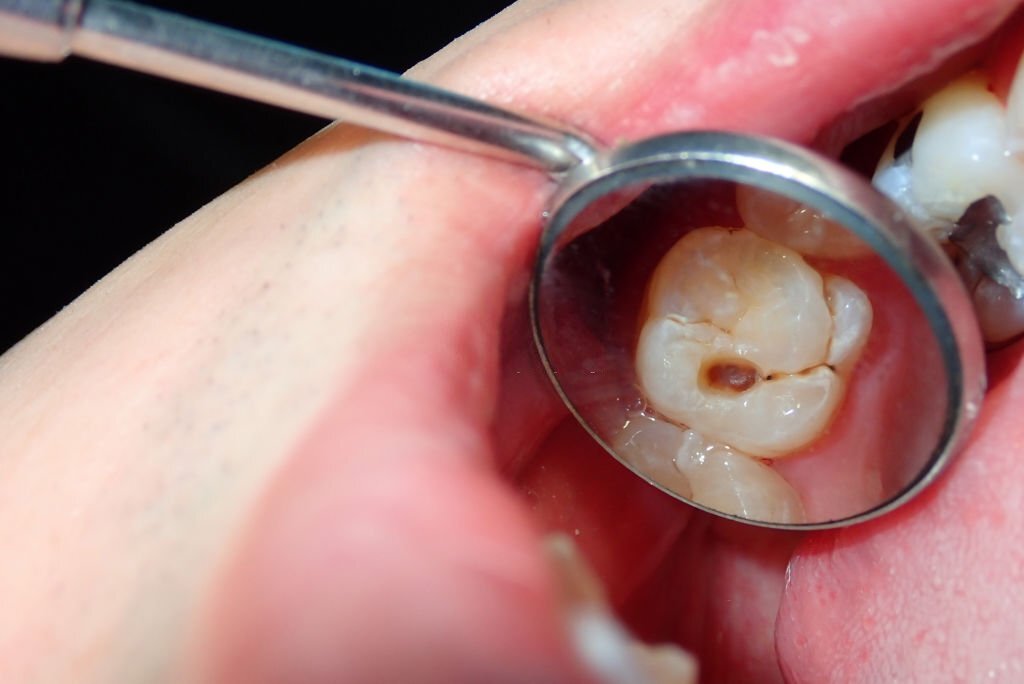Introduction to Dental Cleanings
Oral health is a crucial aspect of overall well-being, and maintaining it requires regular dental check-ups and cleanings. Among the various procedures performed in a dental office, scaling and root planing stand out as essential treatments for preventing and managing gum disease. While both procedures are integral to maintaining good oral health, they serve distinct purposes and are performed under different circumstances. This blog will provide a comprehensive understanding of dental scaling and root planing, highlighting their differences, purposes, and what patients can expect during each procedure. Scaling teeth meaning By clarifying these concepts, we hope to empower individuals to make informed decisions regarding their dental care.
The Importance of Preventive Dental Care
Preventive dental care is vital in maintaining optimal oral health and preventing severe complications down the line. Regular dental visits help identify early signs of issues, allowing for timely intervention and reducing the risk of advanced problems. Two crucial components of preventive care are dental scaling and root planing. Scaling helps remove plaque and tartar buildup, while root planing addresses deeper concerns related to gum disease. Scaling teeth meaning Understanding these procedures can encourage patients to prioritize their dental health and seek professional care when necessary.
Common Misunderstandings About Scaling and Root Planing
Many people have misconceptions about dental scaling and root planing, often confusing the two procedures or believing that they are unnecessary if they practice good oral hygiene. It is essential to dispel these myths to ensure patients understand the importance of both treatments. Scaling is not merely a routine cleaning but a targeted approach to preventing gum disease. Similarly, root planing is not just a luxury for those with severe gum issues; it is often necessary for individuals with signs of periodontal disease. By clarifying these misunderstandings, patients can better appreciate the value of these procedures in maintaining their oral health.
What is Dental Scaling?

The Definition of Dental Scaling
Dental scaling is a procedure that involves the removal of plaque, tartar, and surface stains from the teeth, particularly in hard-to-reach areas. Performed by a dental hygienist or dentist, scaling is typically part of a routine dental cleaning and is essential for preventing gum disease and maintaining overall oral health.
The Process of Scaling Teeth
During the scaling procedure, dental professionals use specialized instruments, including manual scalers and ultrasonic devices, to effectively remove deposits from the tooth surfaces. The process is designed to eliminate harmful bacteria and prevent the progression of gum disease. Scaling typically lasts between 30 to 60 minutes, depending on the extent of cleaning required.
When is Scaling Necessary?
Scaling is necessary for individuals who have accumulated plaque and tartar on their teeth, regardless of their oral hygiene habits. Even those with a diligent brushing and flossing routine can benefit from regular scaling, as it targets areas that may be difficult to clean effectively. Dentists generally recommend scheduling scaling sessions every six months to a year, depending on individual needs.
What is Root Planing?

The Definition of Root Planing
Root planing is a more intensive procedure that focuses on the surfaces of the tooth roots below the gumline. This treatment aims to remove plaque, tartar, and any bacteria that may be causing gum disease. Root planing is often performed alongside scaling, especially for patients diagnosed with periodontal disease.
The Process of Root Planing
The root planing process involves thorough cleaning of the tooth roots, smoothing the surfaces to promote healing and encourage gum reattachment. Dentists use specialized instruments to reach below the gumline and effectively clean the roots. Depending on the severity of gum disease, local anesthesia may be administered to ensure patient comfort during the procedure. Root planing sessions can vary in length but typically take longer than standard scaling due to the need for precision and thoroughness.
When is Root Planing Necessary?
Root planing is necessary for patients with gum disease, particularly those exhibiting symptoms such as swollen, bleeding gums, or pockets forming between the teeth and gums. Dentists will often recommend root planing if they detect signs of periodontal disease during a routine examination. It is a vital step in halting the progression of gum disease and restoring oral health.
Key Differences Between Scaling and Root Planing

Purpose of the Procedures
While both scaling and root planing aim to improve oral health, they serve different purposes. Scaling focuses on the removal of surface plaque and tartar from the teeth, making it an essential part of preventive care. In contrast, root planing targets deeper cleaning below the gumline to address existing gum disease and promote healing. Scaling teeth meaning Understanding the specific purposes of each procedure can help patients appreciate their importance in maintaining oral health.
Areas of Focus
Another significant difference between scaling and root planing is the area of focus. Scaling primarily addresses the surfaces of the teeth above the gumline, while root planing focuses on the tooth roots below the gumline. This distinction is crucial in understanding the appropriate treatment for various levels of gum disease and ensuring comprehensive care.
Level of Invasiveness
Scaling is generally considered less invasive than root planing. Scaling is often performed as a routine dental cleaning, while root planing may require more extensive treatment and, in some cases, local anesthesia for patient comfort. This difference in invasiveness highlights the importance of tailored treatment approaches based on individual needs and the severity of gum disease.
What to Expect During Each Procedure

Dental Scaling Experience
Patients undergoing dental scaling can expect a relatively quick and straightforward experience. The dental hygienist or dentist will use specialized instruments to remove plaque and tartar from the tooth surfaces. Patients may hear scraping sounds, but discomfort is typically minimal. Some patients may experience mild sensitivity during or after the procedure, which can be managed with over-the-counter pain relievers. Following scaling, patients will usually receive advice on maintaining good oral hygiene to prevent future buildup.
Root Planing Experience
Root planing may require a longer appointment due to its more detailed nature. Before the procedure, the dentist may discuss the need for local anesthesia to ensure comfort. During root planing, the dental professional will carefully clean and smooth the tooth roots, and patients may experience mild discomfort or pressure. After the procedure, dentists often recommend special care instructions, such as avoiding certain foods and practicing gentle oral hygiene, to promote healing.
The Benefits of Scaling and Root Planing

Improving Gum Health
Both scaling and root planing contribute significantly to improving gum health. Regular scaling helps prevent the onset of gum disease, while root planing effectively treats existing issues. By addressing plaque and bacteria, these procedures reduce inflammation, promote healing, and help restore gum health.
Preventing Tooth Loss
One of the most significant benefits of scaling and root planing is their role in preventing tooth loss. Untreated gum disease can lead to tooth mobility and eventual loss. By investing in these procedures, patients can protect their natural teeth and avoid more complex dental treatments in the future.
Enhancing Overall Oral Health
Scaling and root planing not only benefit gum health but also enhance overall oral health. By reducing bacteria levels and inflammation in the mouth, these procedures contribute to better overall hygiene and can even have positive effects on systemic health. Maintaining good oral health is essential for preventing conditions such as heart disease and diabetes, making scaling and root planing vital components of a comprehensive dental care regimen.
Debunking Myths About Scaling and Root Planing

Common Misunderstandings
Many people believe that scaling and root planing are only necessary for individuals with severe gum issues. Scaling teeth meaning In reality, both procedures are important for maintaining oral health, regardless of a person’s current dental status. Additionally, some may fear that these treatments are overly painful, which is often not the case with proper pain management techniques.
Understanding the Reality of Treatment
Patients should understand that scaling and root planing are not just for those with poor dental hygiene. Even individuals who brush and floss regularly can benefit from these treatments. By prioritizing preventive care and regular cleanings, patients can minimize the need for more invasive treatments in the future.
Tips for Preparing for Your Scaling and Root Planing Appointment

What to Discuss with Your Dentist
Before undergoing scaling or root planing, patients should feel comfortable discussing their dental history, any concerns, and the specific details of the procedures with their dentist. Being informed about what to expect can help alleviate anxiety and ensure a smooth experience.
Pre-Appointment Care
Maintaining good oral hygiene before the appointment is essential. Patients should continue their regular brushing and flossing routine leading up to the visit. Additionally, avoiding tobacco products can contribute to better outcomes during and after the procedures.
The Importance of Follow-Up Care
After scaling or root planing, follow-up appointments are crucial to monitor progress and ensure the effectiveness of the treatment. Patients should adhere to their dentist’s recommendations regarding follow-up visits and any necessary adjustments to their oral care routine.
Conclusion: Understanding and Prioritizing Your Dental Care

The Value of Dental Scaling and Root Planing
In conclusion, dental scaling and root planing are essential procedures for maintaining oral health and preventing gum disease. Understanding the differences between these treatments allows patients to appreciate their importance and make informed decisions regarding their dental care. Both procedures play a crucial role in promoting healthy gums and preventing tooth loss.
Encouraging Preventive Care
This blog serves as a reminder for individuals to prioritize preventive dental care. Regular check-ups, cleanings, and open communication with dental professionals are vital components of maintaining optimal oral health. Scaling Teeth Meaning By investing in their dental care, patients can enjoy the long-term benefits of a healthy smile.
Embracing a Proactive Approach
As you navigate your journey towards better oral health, consider scaling and root planing not just as procedures but as opportunities to invest in your well-being. Embrace the importance of regular dental care, and take proactive steps to ensure your smile remains healthy and bright for years to come.


